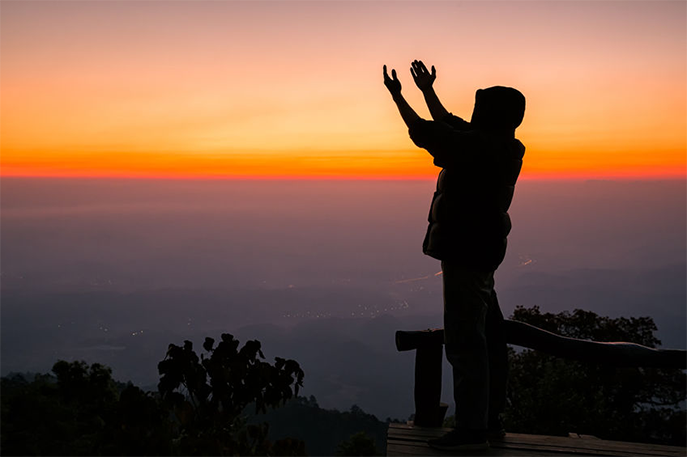

I was born in 1926, in Chrzanów, Poland, to a vibrant and very religious family. I do not remember any extraordinary event from my early childhood other than the death of my mother, at the age of 31, when I was only four years old; I do not remember her face.
My father remarried, and she, my stepmother, treated me and my older brother, very well, she was devoted to us as she was to her own child.
We had a relatively good life; not lacking anything that was available in those times. There was no electricity, no plumbing, neither radio nor TV; many gadgets and conveniences that are being taken for granted nowadays were not even in our dreams. We lived comfortably, because my father had a successful business, which he inherited from his parents. My father worked long hours, my stepmother had to do all the work that is done today by washers, blenders, etc., and we the kids were also occupied most of the days.
Since it was mandatory to attend public school, we got our religious instructions during the afternoon hours. In retrospect, it seems to me, that life in those days was very meaningful. There was an abundance of love, and care for each other. The values, such as faith, honesty, righteousness, respect for the elderly, personal responsibilities, to be industrious and eager to learn, that I cherish today, were instilled at home; we were practically sheltered from the outside world’s negative influence.
The normalcy came to an end in September 1939. Since Chrzanów, my hometown was close to the German border, we were urged to flee to the interior of Poland. By horse and wagon, we managed to trek about 50 miles till the German invading army caught up with us. My father did not join us in the tryout to escape, because the Polish retreating army ordered him to stay behind and supply it with provisions stored in my father’s business.
On 9/11/1939, my father was shot, left to bleed, and eventually to expire, and thrown into a pit, together with 36 other victims, by German soldiers. In November, when public transportation was partially restored, my stepmother, two brothers and I trekked back to our home in Chrzanów. The apartment was looted, and the worst of all, we could not find out the whereabouts of our father. In December, that pit was opened, the bodies exhumed, and my father’s partially decomposed body was identified (finding familiar items in my father’s cloth) by my stepmother while I was standing by.
This traumatic experience has been haunting me ever since; it resonates in my frequent nightmares. So, an orphan at the age of 13, I could no longer go to school, I was subjected to deprivation, persecution, helplessness, and hopelessness.
In 1941, my older brother was taken into forced labor camps, and in June 1942, I was deported into a forced labor camp. On February 18, 1943, my stepmother and her nine-year-old son were deported to Auschwitz, where they perished, as did hundreds of my close relatives.
While being tormented in Gross Masselwitz (one of the camps), at a certain juncture a German woman, jeopardized her life to help me, by hiding a sandwich for me, every day for 30 days. Her gesture I will never forget, it fortified my belief that people must be judged by their merits, and not by their ethnicity (in the same vein I aver that not all Germans were active participants in the Holocaust).
I was incarcerated for 35 months in five camps, in Germany, near Breslau (Wroclaw). Today, that area belongs to Poland and I marked the Polish name in parentheses.
Jun 1942 to Oct 1942 - Forced Labor Camp Blechammer (Blachownia Slaska).
Oct 1942 to Dec 1942 - Forced Labor Camp Brande (Prądy)
Dec 1942 to Feb 1944 - Forced Labor Camp Gross-Masselwiz (Dzielnica Maslice Wielke)
Feb 1944 to Sep 1944 - Forced Labor Camp Klettendorf (Klecina)
Sep 1944 to May 9, 1945 - Concentration Camp Waldenburg (Wałbrzych)
I was liberated on May 9, 1945, a day after the official German capitulation, by the Russian Army; a Russian tank approached our gate and the officer said, in halting Yiddish “Jews you are liberated, go out to the city of Waldenburg: Kill Germans, rape and rob, take vengeance. We know how you feel; we lost 22 millions of our people, tens of thousand of our villages were wiped out.” I could not take his advice; it would be alien to my character. My father’s motto was: “Hate hatred and shun violence.”
I went back to Poland to see if any other relatives survived. Five cousins did survive and hundreds of my close and distant relatives perished. I got married in 1952; I have two married sons, and six grandchildren. I came to this country in 1960, did menial work to support a family, and attended evening classes, at Brooklyn College, to learn accounting and catch up some knowledge that I was deprived of in my teens. I am grateful to the US for giving me a chance of revival.
Alter Wiener's memoir From A Name to A Number was published in April 2007.



